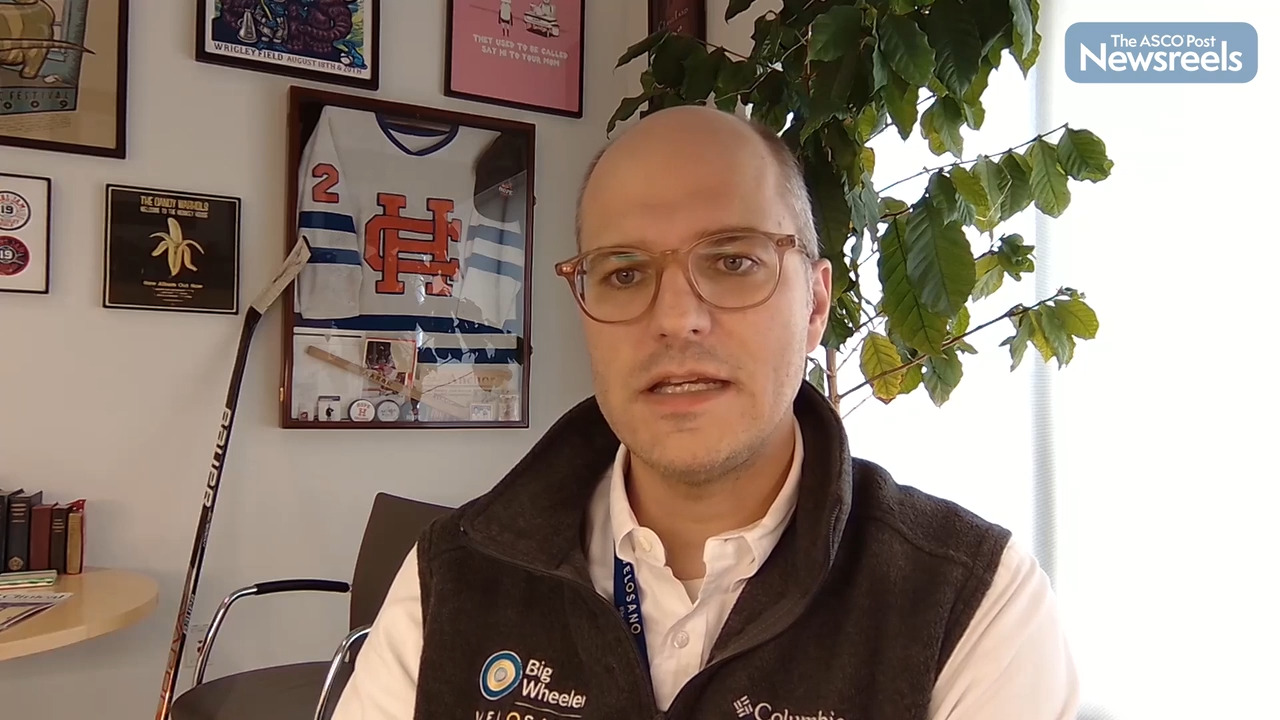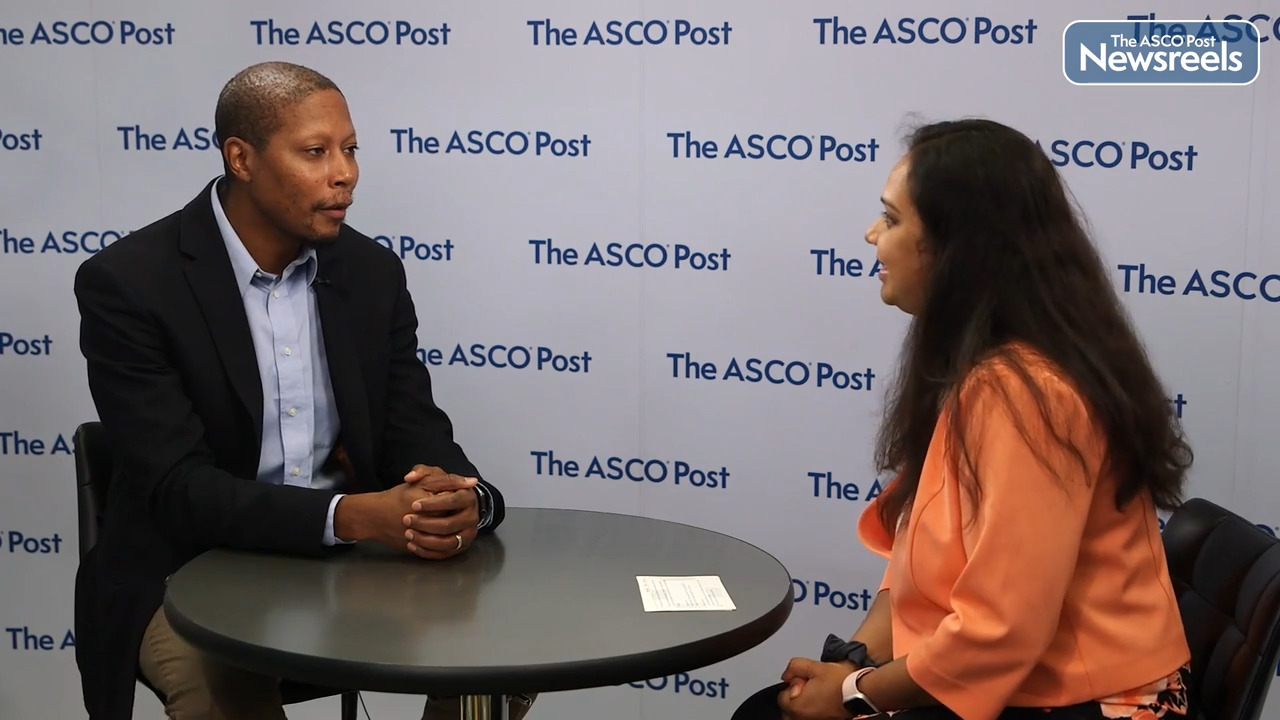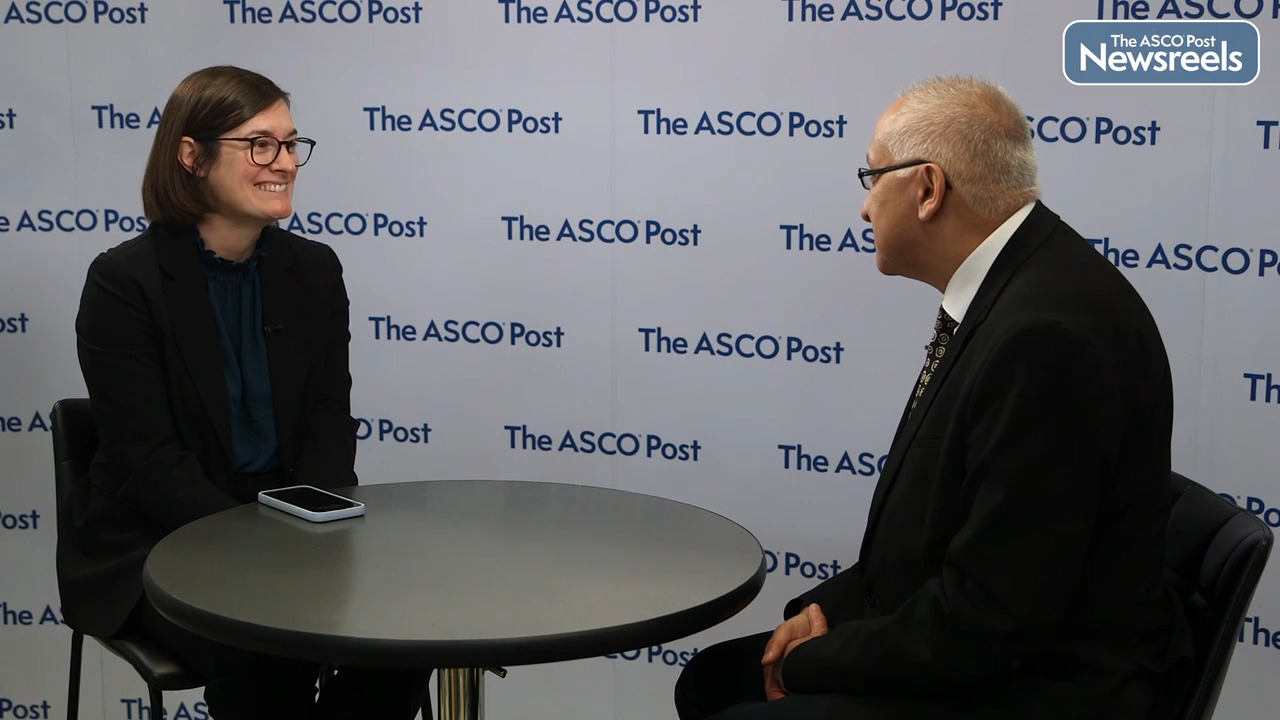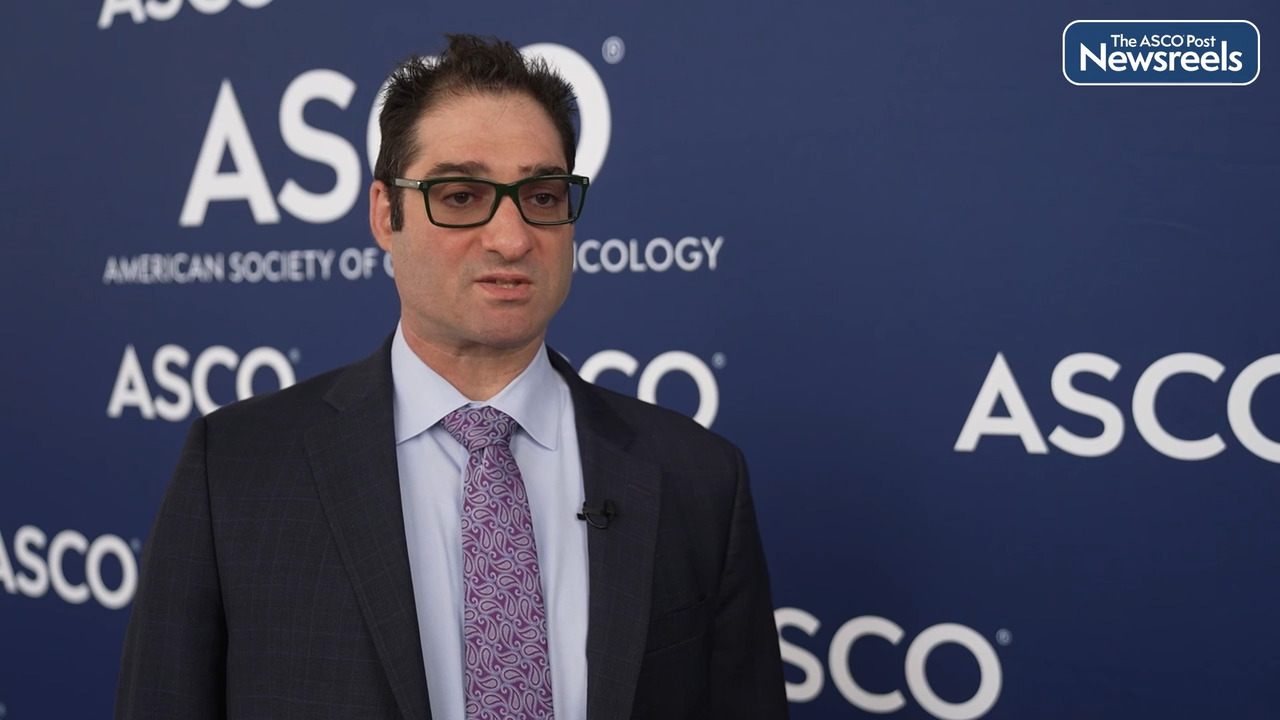Narjust Florez, MD, and Ferdinandos Skoulidis, MD, PhD, on NSCLC: Findings on Sotorasib vs Docetaxel in the CodeBreaK 200 Trial
2023 ASCO Annual Meeting
Narjust Florez, MD, of Dana-Farber Cancer Institute, and Ferdinandos Skoulidis, MD, PhD, of The University of Texas MD Anderson Cancer Center, discuss results of a biomarker subgroup analysis, showing that sotorasib demonstrated consistent clinical benefit vs docetaxel in all molecularly defined subgroups of patients with pretreated KRAS G12C–mutated advanced non–small cell lung cancer (NSCLC). Although no predictive biomarkers were confirmed, novel hypothesis-generating signals were observed (Abstract 9008).
The ASCO Post Staff
Aaron T. Gerds, MD, of Cleveland Clinic Taussig Cancer Institute, talks about treating the anemia many patients with myelofibrosis experience because of JAK inhibitor therapy. The ACE-536-MF-001 study showed that luspatercept improved anemia and transfusion burden in this population, with a safety profile consistent with that in previous studies (Abstract 7016).
The ASCO Post Staff
Tycel J. Phillips, MD, and Swetha Kambhampati, MD, both of City of Hope National Medical Center, discuss new findings showing that the real-world effectiveness and safety of brexucabtagene autoleucel were similar to data from the pivotal ZUMA-2 trial in patients with relapsed or refractory mantle cell lymphoma, regardless of prior BTK inhibition, bendamustine, or autologous stem cell transplantation (Abstract 7507).
The ASCO Post Staff
Bobbie J. Rimel, MD, of Cedars-Sinai Medical Center, and Mansoor R. Mirza, MD, of Denmark’s Rigshospitalet and Copenhagen University Hospital, discuss new findings on dostarlimab-gxly plus carboplatin/paclitaxel, which improved progression-free survival while maintaining health-related quality of life, further supporting its use as a standard of care in primary advanced or recurrent endometrial cancer (Abstract 5504).
The ASCO Post Staff
Jonathan W. Riess, MD, of the University of California, Davis Comprehensive Cancer Center, explores the findings of three important clinical trials in lung cancer treatment: whether to incorporate immune checkpoint inhibitors into the treatment of EGFR-mutated lung cancer, the importance of central nervous system activity in EGFR-mutant lung cancer, and new therapies for disease with EGFR exon 20 insertion.
The ASCO Post Staff
Catherine C. Coombs, MD, of the University of California, Irvine, discusses prolonged pirtobrutinib therapy, which continues to demonstrate a safety profile amenable to long-term administration at the recommended dose without evidence of new or worsening toxicity signals. The safety and tolerability observed in patients on therapy for 12 months or more were similar to previously published safety analyses of all patients enrolled, regardless of follow-up (Abstract 7513).





